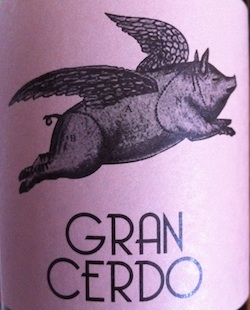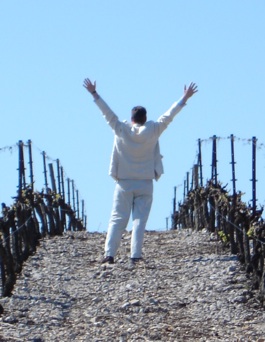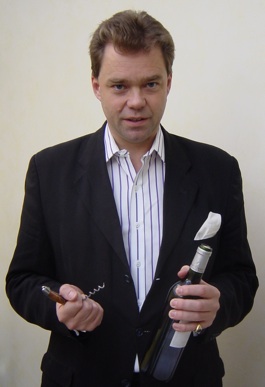Natural Wine
The wine world always needs a fiery debate to sink its teeth into; under-garments were once tied in knots when the use, or overuse, of new oak was discussed; then came the cork v screwcap debate, which now simmers on a back burner, allowing for rational rather than hot-headed debate. Step forward ‘natural’ wine, it is your turn to set the commentators at (verbal) daggers drawn.
It is hard to fathom how the simple word ‘natural’ could be the cause of so much heated debate but, once it is appended to ‘wine’, the fur begins to fly. The problem is two-fold: those winemakers who do not class themselves as ‘natural’ object to the seizure of the moral high ground that the term ‘natural’ implies; and, as yet, there is no widely accepted definition for natural wine. (See below.)

My own disposition is to be in favour of these wines, as much because of what I see elsewhere as what I see in them. The world is awash with bland, industrially produced wines that are the very antithesis of what wine is all about. Wine’s greatest strength and enduring joy is its variety. Rob it of that and you are left with very little, usually a technically faultless or ‘too perfect’ wine – and that rates almost as a fault in my book.
These wines have been to the gym, used the sunbed and had the botox done. But their flavours, often in the shape of too much oak or excess added acidity, are bolted on rather than integrated; they have no character of their own. A wine should, nay must, express something of the grape it is made from and the place it is made. Without grape ‘n’ ground it is nothing more than another alcoholic beverage.
It is not just the producers who are to blame for this. Far too much wine tasting in the wine media and the trade today is little more than fault spotting. The wine is put through its NCT (or MOT), passes or fails, and that’s that. It’s like assessing candidates for a job on the basis of an aptitude test alone, with no interview. It’s mad and it’s leading to wines that are ever more formulaic, ever less exciting.
The natural wine movement has sprung up in reaction to all of this, particularly the over-manipulated, characterless wines. Any natural wines that I have tasted have had character aplenty. Granted, some have gone too far down the funky ‘n’ feral road for anybody’s liking, apart from the winemaker, but most have been suffused with vibrant flavours, lovely freshness and a light texture. They are usually lower in alcohol and have seen less new oak than their mainstream brethren. As a consequence there is much less weight and density of flavour; the wines tend not to plod over the palate, yet they do not cross it unnoticed either.
In terms of style, natural wines are sometimes too challenging, too quirky for wine drinkers more used to polished ‘perfect’ flavours. It isn’t going too far to say that some of them exhibit an earthy ‘pong’ that is for aficionados only. But that is not their biggest problem; it is the use of the word ‘natural’ and the suggestion, however unintended, that the wine somehow makes itself, with only a nudge from the hand of man. That is far from the case, for even the lowest intervention winemaking requires significant human input. A better name needs to be found, but what might that be? ‘Un-manipulated’? ‘Low Intervention’? No, I didn’t think so either.
TOWARDS A DEFINITION
At present the term ‘natural wine’ lacks a proper, rigorous definition and because of its woolly, feel good overtones it is an easy object for derision. Even amongst its proponents there are many variations of just what is meant by the term and this is unlikely to change in the near future.
Broadly speaking, a natural wine will fit the following parameters: made with organically or biodynamically grown grapes, harvested by hand from unirrigated vineyards; no additives such as cultured yeasts, sugar, acid or flavourings; very little fining or filtration; minimal or no use of sulphur. In short, it could be summed up thus: Made with little intervention – in the form of chemical and technological wizardry – in the vineyard and the winery.
GET THEE TO… LE CAVEAU
Nobody in Ireland takes natural wine more seriously than the urbane Pascal Rossignol of Le Caveau in Kilkenny. And he doesn’t adopt a messianic approach to them either, he stocks them because he thinks they are good wines – and they are. The following trio are top of the pops for me:
‘Gran Cerdo’ Tempranillo, Gonzalo Gonzalo Grijalba 13% €12.50
Touraine ‘In Côt We Trust’ 2008, Thierry Puzelat 12% €20.95
Prosecco di Valdobbiadene NV, Casa Coste Piane 11% €19.50
www.lecaveau.ie
Article first published in the July-August issue of Food & Wine Magazine.

